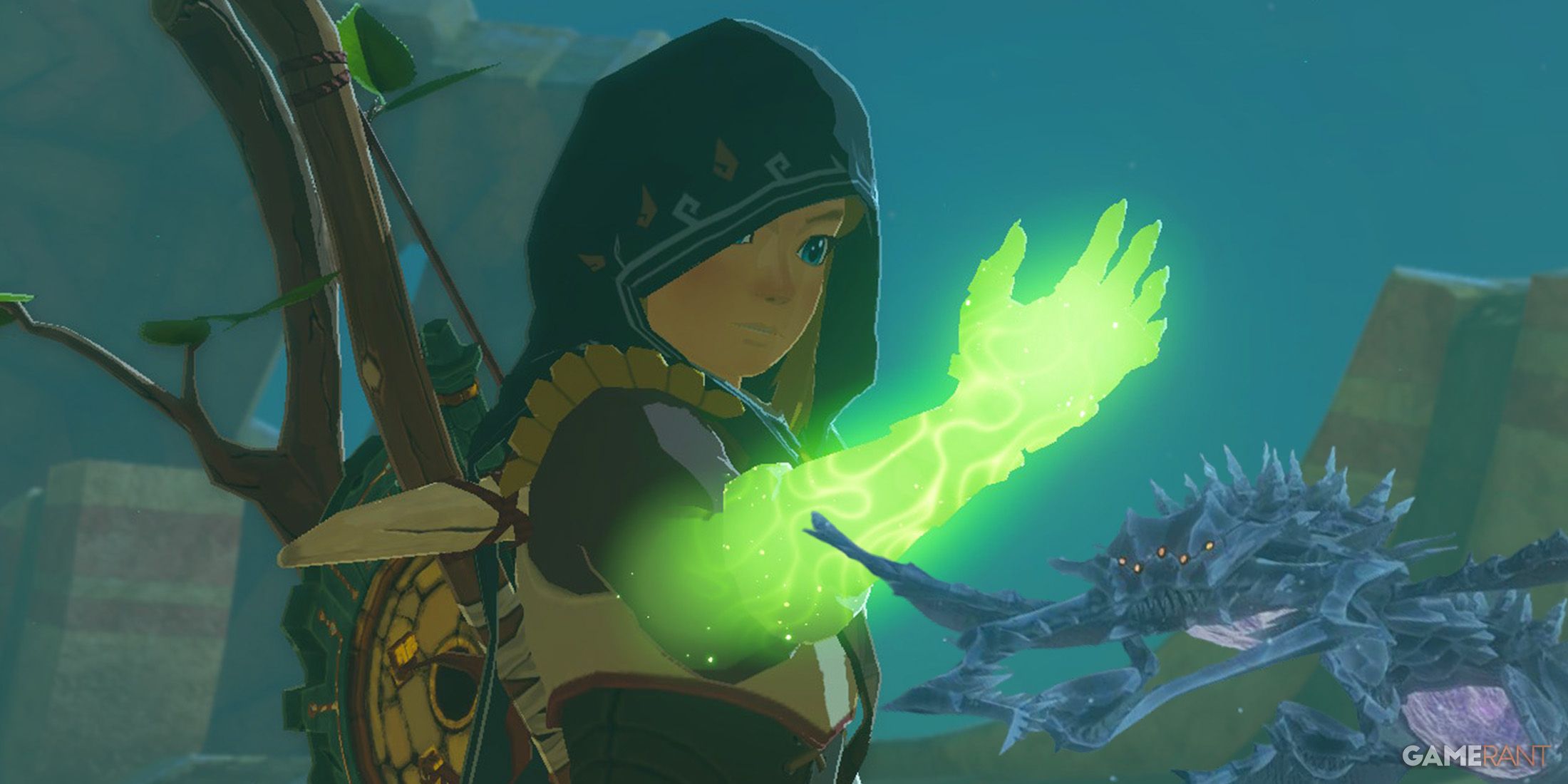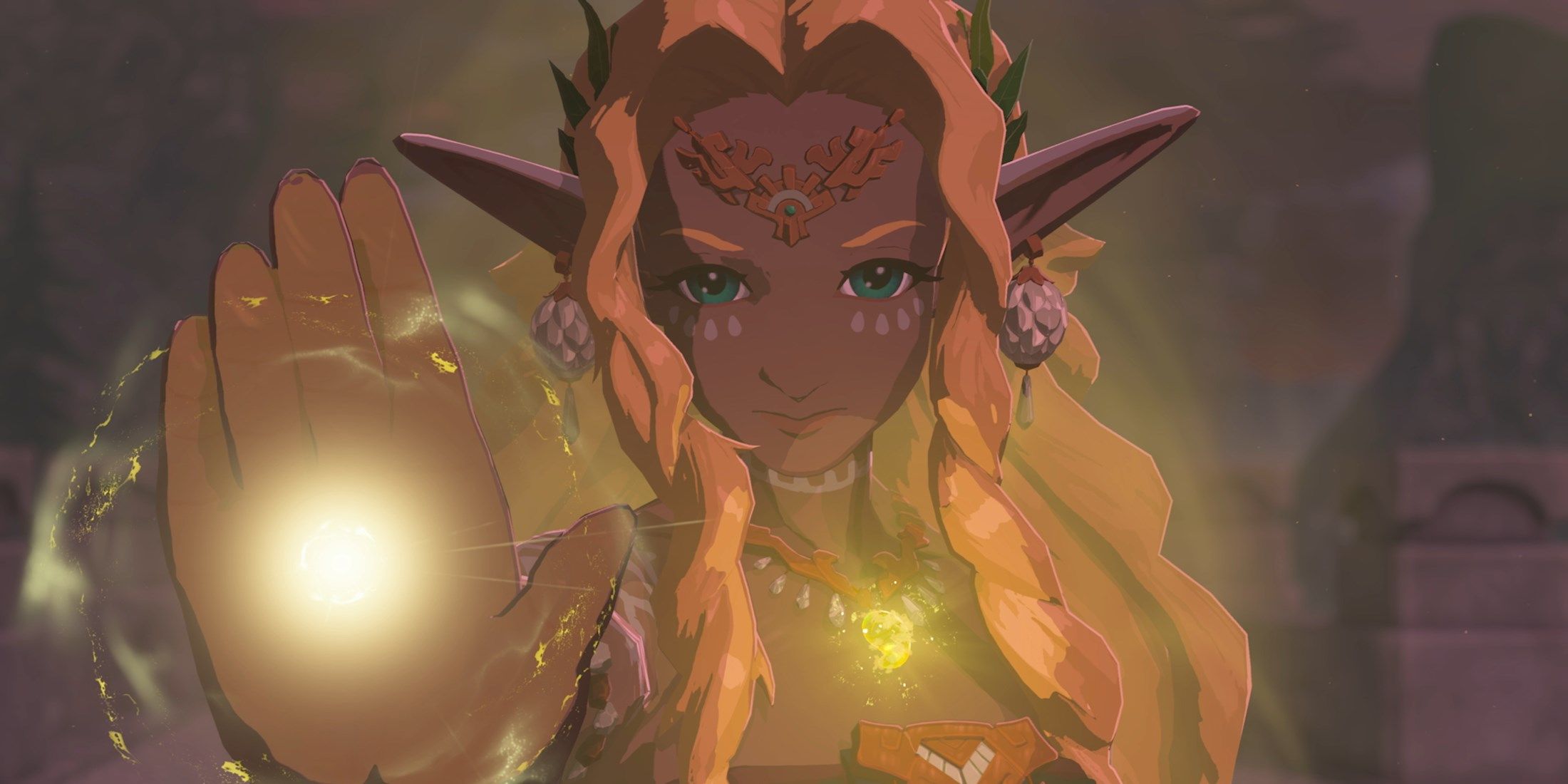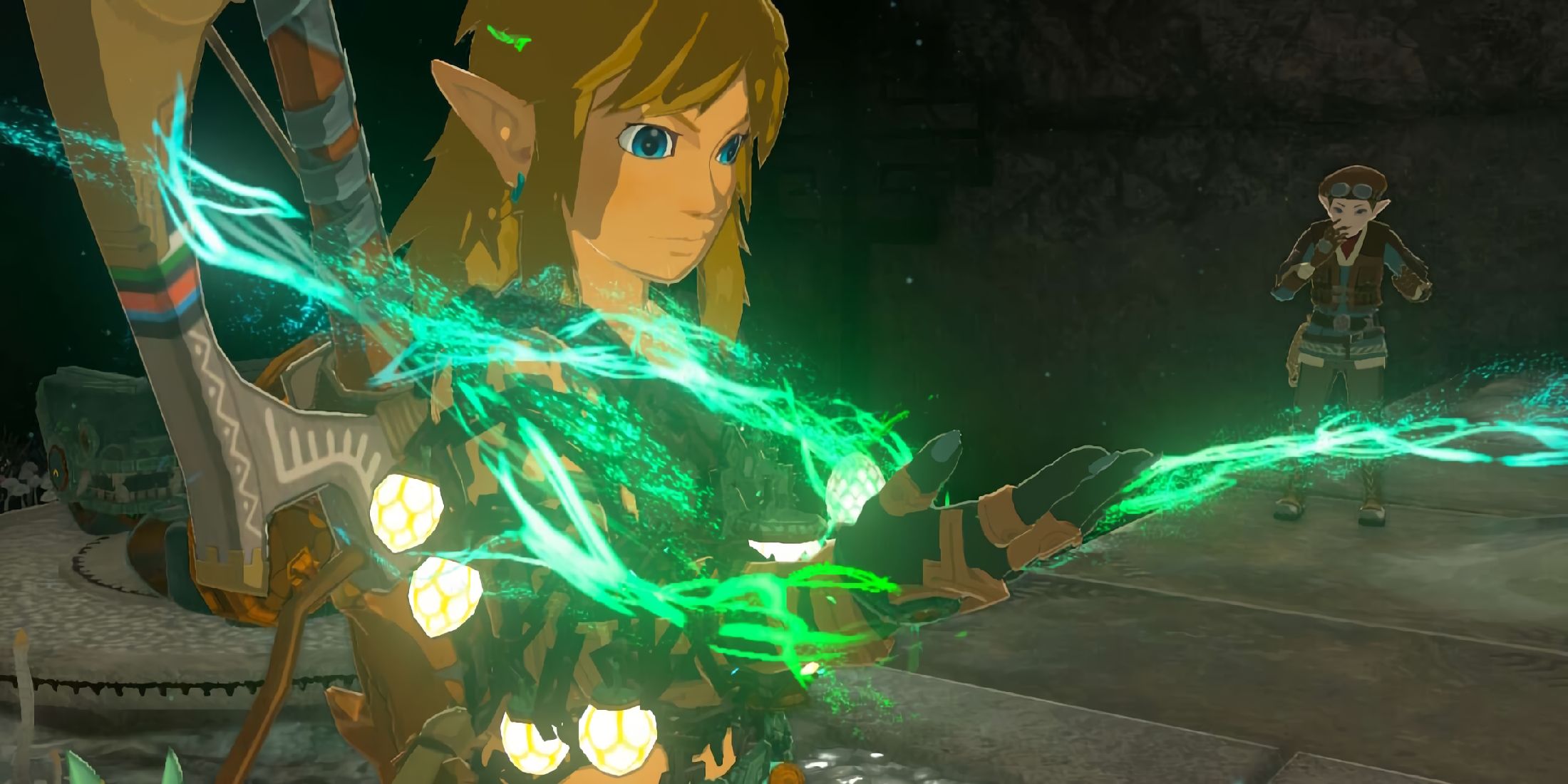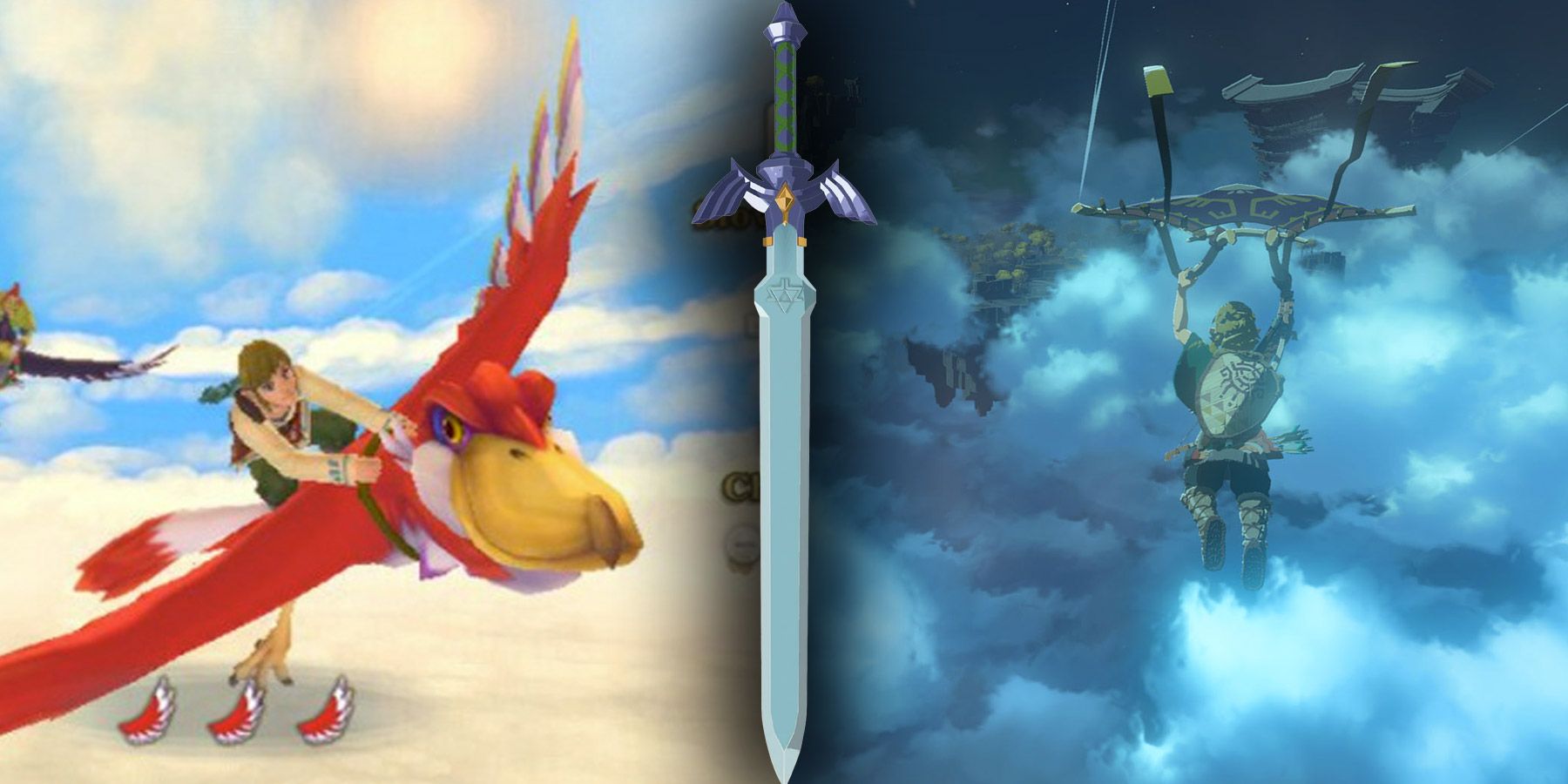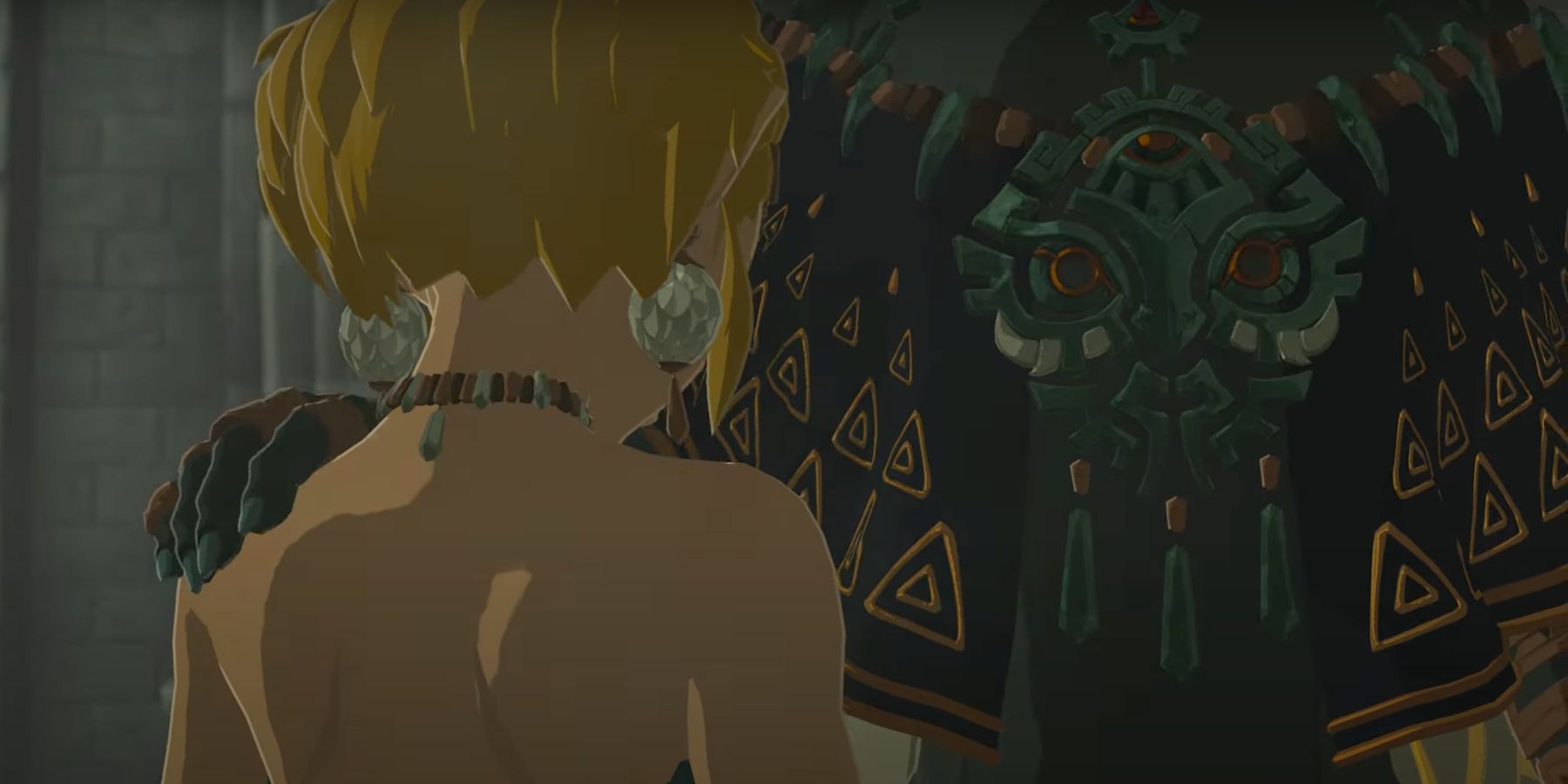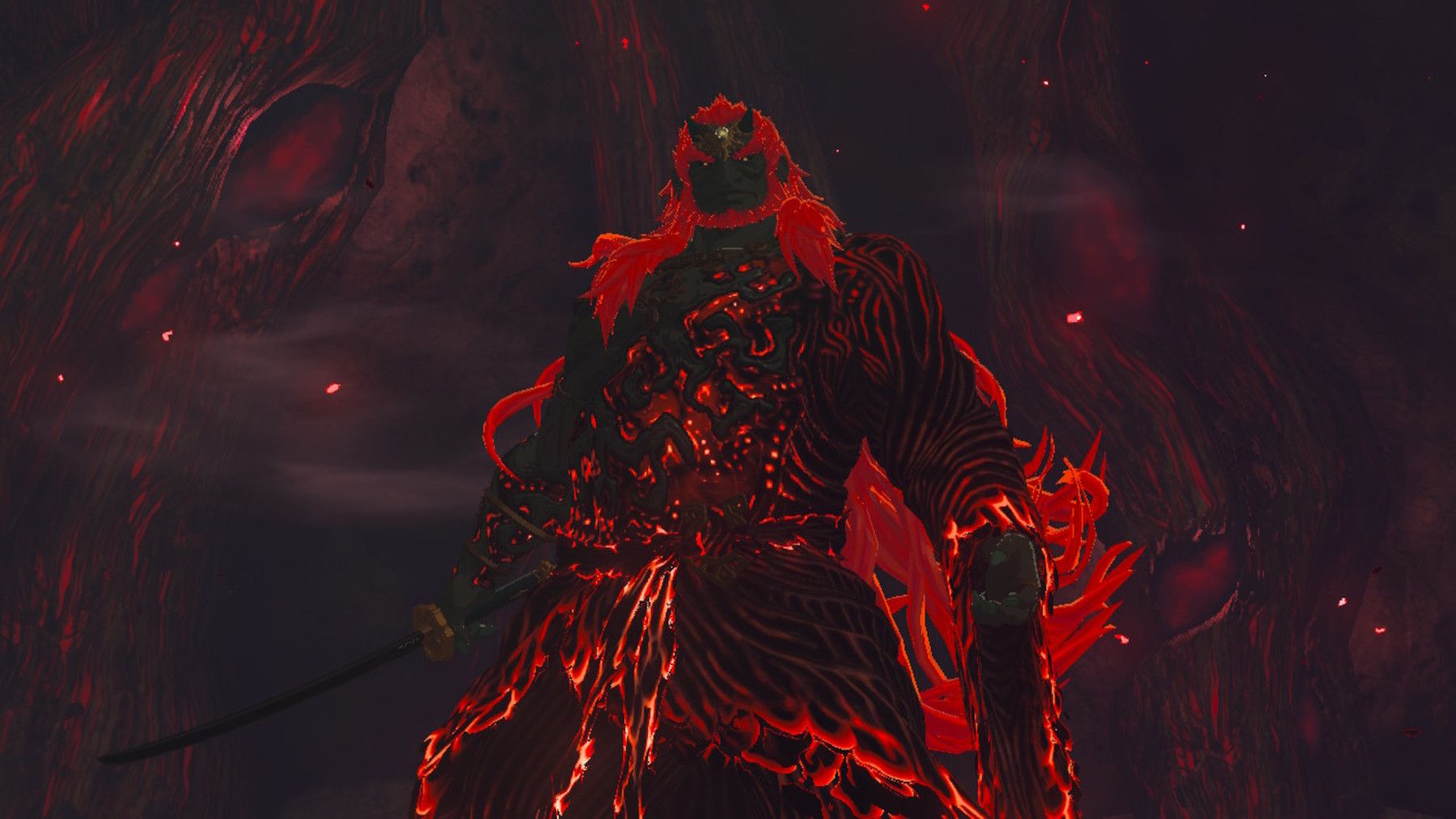Within the grand scheme of Zelda's many timelines, it seems that The Legend of Zelda: Tears of the Kingdom might be the closing chapter to The Legend of Zelda: Skyward Sword and serves as a bookend to the game where the cycle first began. Before its release, many had speculated about the possible connections The Legend of Zelda: Tears of the Kingdom might have with other games from across the series, with most theories focusing on Skyward Sword and Twilight Princess. But Tears of the Kingdom's story and its position within Zelda's timelines could suggest that the cycle may finally be broken.
By examining various details from across Tears of the Kingdom, such as its story, its themes, and its imagery, it's possible to piece together how exactly Nintendo's latest Zelda game connects all the way back to Skyward Sword. Though not the first ever published Zelda game, it caused controversy for canonizing the most essential Zelda lore despite eventually being considered the series' worst game to date. But Tears of the Kingdom might have redeemed Skyward Sword by creating a narrative and gameplay experience that endeavors to resolve its predecessor's mistakes, ultimately providing closure to both it and Breath of the Wild.
Gods and Goddesses, The Zonai, and Fi
From the start of Tears of the Kingdom's story, the game introduces and explains the mythos of the Zonai. Though they were included in passing references in Breath of the Wild, Tears of the Kingdom expands on this new lore by suggesting that long before Hyrule had even formed that the Zonai had come down from the heavens. While they didn't believe they were gods, Rauru acknowledges that the technology of Constructs, Zonai devices, and Secret Stones would have given that impression. Despite this, Rauru still established himself as king and took a Hylian wife, and this is claimed to be the origin of Hyrule's founding.
However, this conflicts with the canon that Skyward Sword establishes, as its story suggests that Zelda and Link remain on the surface and form the first kingdom of Hyrule. But while there are some details that might contradict one another, it is possible to join the two narratives together. For instance, both games make reference to how sky islands serve to protect others from evil, how advanced beings came down from the sky, and how the lines blur between the supernatural and technological. With a small adjustment, it's arguable that Tears of the Kingdom is continuing from Skyward Sword's canon.
What serves as a linchpin to this theory though is Fi. Though she has been regarded by fans as the worst companion in Zelda, Fi has seen recent defense as a great concept just badly executed. Despite claiming to be a spirit created by the Goddess Hylia, Fi is without question presented as if she were an artificial intelligence, which could mean she actually has Zonai origins with her history being rewritten. This theory is strengthened in Tears of the Kingdom by its story focusing on restoring the Master Sword, Fi's theme from Skyward Sword playing during cutscenes, and the sword "responding" to other characters.
Ganondorf, The Depths, and Demise
In its prologue, Skyward Sword explains how the likes of Skyloft and other islands came into existence, stating that fissures opened up on the surface and let loose evil forces. This is uncannily similar to Tears of the Kingdom and the event that it dubs the "Upheaval," which chasms opening up across Hyrule that Gloom emanates from. Throughout Zelda, many games have references to an "Underworld" which was claimed to be where Ganondorf and his minions resided. This too is also reflected in Tears of the Kingdom, with Ganondorf's armies populating the Depths and where Ganondorf himself has made his lair beneath Hyrule Castle.
Similarly, as the forebear to Ganondorf, Demise is also described to be the Demon King who commands an army from beneath the earth. But more specifically, during Skyward Sword's story, it is revealed that Demise is attempting to break free from a seal he was placed under long ago, with the player encountering a boss named "The Imprisoned" on multiple occasions. Tears of the Kingdom again appears to directly parallel this narrative, with Ganondorf attempting to break free of a seal placed on him during "The Imprisoning War." While Ganondorf is the reincarnation of Demise, the connections seem too close to just be self-referential.
Much like Fi, there is evidence that supports the theory that Tears of the Kingdom's and Skyward Sword's parallels are more than they seem, and it can be seen with Ganondorf after he has one of the Secret Stones. Not only do these Secret Stones bear a resemblance to Skyward Sword's Sacred Tears which further ties into Tears of the Kingdom's subtitle, but Ganondorf's transformation further evokes the same look of Demise once he has been resurrected. Between flowing fiery tendrils of hair and his body pulsing with Malice or Gloom, Tears of the Kingdom presents its version of Ganondorf as Demise in everything but name.
Between Skyward Sword, Tears of the Kingdom, and Beyond
Though the Zelda series isn't likely to end with Tears of the Kingdom as its ultimate finale, especially since a new Zelda game is supposedly already being planned, it's possible that just as Skyward Sword began the timeline, Tears of the Kingdom appears to end it. Breath of the Wild had already been confirmed by Nintendo as the supposed inevitable endpoint of Zelda's three branching timelines, and as its sequel so too does Tears of the Kingdom. It would therefore make sense in Zelda's larger narrative to have the closure of these branching timelines directly engage with the legacy Skyward Sword had first set out.
With this in mind, the series could still live on with Zelda games set between the two endpoints of Skyward Sword and Tears of the Kingdom as the latter emphasizes the millennia of history Hyrule has. But this could be Nintendo's plan to redress the errors from Skyward Sword, from small details like perfecting the use of stamina to the large such as perfecting a world within the sky, and ultimately perform a soft reboot. Until now, speculation around Zelda's timelines has overshadowed each game's release, so Tears of the Kingdom could start a new Zelda timeline altogether.
The Legend of Zelda: Tears of the Kingdom is available now on Nintendo Switch.

